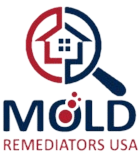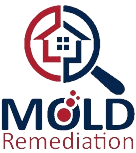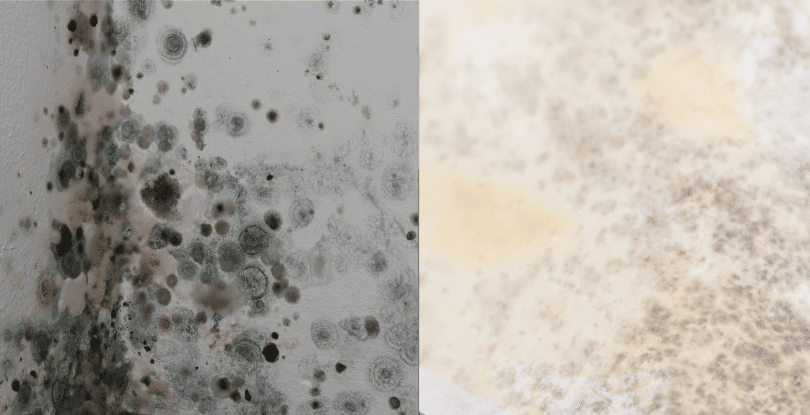How to Tell if You Need a Mold Inspection
Mold is a common problem that can plague homes often invisible and undetected. If left without proper mold inspection, it can lead to health hazards and property damage. While mold is not always visible, there are some clues as to what could be growing. In this article, we will break down the most common signs of mold growth in the home. We will also stress the importance of scheduling regular inspections to catch mold growth early on.
Common Indicators of Mold Growth:
- Visible mold: The easiest way to know you need a mold test is to see the evidence with your own eyes: visible mold growth. mold can appear as black, green or brown discoloration on walls, ceilings, floors and other surfaces, as well as as fuzzy or powdery growth in humid or damp areas, such as bathrooms, kitchens, basements and attics.
- Moldy Smell: Mold has a distinct earthy, stale odor. If you smell something musty in certain areas of your home, chances are you’ve got a mold problem. If you cannot see the problem, for example, if you live in an apartment, you should detect the odor.
- Mold Found In Home: Any present or previous water damage to your home, for example due to leaks, floods or plumbing issues, heightens the chances of mold growth. Water-damaged areas offer the perfect conditions for mold to grow, including moisture, warmth and organic matter for food. Check areas affected by water damage immediately and thoroughly for signs of mold growth.
- Condensation: Excessive condensation on windows, walls, or other surfaces may indicate high moisture levels, which can contribute to the development of mold. The formation of condensation can often be caused by poor ventilation in areas of the home, poor ventilation in bathrooms that don’t have exhaust fans, or inadequate insulation in the home.
- Respiratory Symptoms: Mold can aggravate allergies, such as sneezing, coughing, congestion, watery eyes, itchy eyes, and itchy skin. If you or members of your family complain of weird allergy symptoms that seem to be worse indoors or in certain areas of the house, it might be caused by a mold problem. You may want to see your doctor about a proper diagnosis, followed by a mold inspection.
- Corrosion of Building Materials: Mold spores can actually degrade building materials such as drywall, wood, and insulation over time. Check for peeling paint, warped surfaces, sagging ceilings, holes, and crumbling drywall that may be signs of underlying mold that is compromising the integrity of the house.
Importance of Scheduling Regular Inspections:
To avoid mold problems, a regular inspection is important to prevent the growth of mold in homes. There are various reasons to include a personalized system to check for mold at home.
Below, there are four reasons discussing the importance of inspecting mold at home. Writing an appropriate response while retaining citations and quotes remains a challenge.
- Early Detection – Mold growths commonly begin in hidden or difficult-to-access spaces, and also tend to develop in areas that may not immediately look like a problem for people without existing sensitivities. Routine inspection by professionals means mold problems can be identified in their early stages, and then addressed before they become larger, more severe problems that may require costlier remediation.
- Preventive Maintenance: Regular inspections can pinpoint the presence of existing moisture problems or water damage; and the presence of other conditions, such as excess warmth or high humidity, likely to promote mold growth. If conditions are favorable for mold, you can take action to stop the problem before it starts, potentially saving yourself time, money, and misery in the long run.
- Maintaining Health: Mold exposure can produce a variety of health concerns, especially those who suffer with allergies, asthma or have weakened immune systems. Regular mold inspections protect the health of tenant occupants from adverse mold exposures due to an indoor mold environment.
- Protecting Property Value: A home can lose value and become harder to sell after mold damage. Without scheduled inspections to combat mold growth, costly repairs and lower resale value could result.
- You’ll feel good! As the homeowner or occupant, it provides peace of mind to know your house was inspected and found to be free from indoor air quality issues that might be related to mold. Routine inspections ensure that your home is a safe and healthy place for you and your family.
Working with the guidance of a qualified and experienced mold inspection professional, homeowners can quickly and accurately identify mold problems in their homes, put in place procedures to help prevent future issues, and, most of all, have peace of mind when their home is clear of mold and suitable for occupancy. Don’t wait for mold to become a major issue – get a mold inspection scheduled today and give your home and your health the attention and protection they deserve.
Do You Have Mold Issues? If You Think You Do, Call Us Toll Free, 1-855-947-6167 – For a Free, No Obligation Quote by a Professional Mold Remediator Near You!




